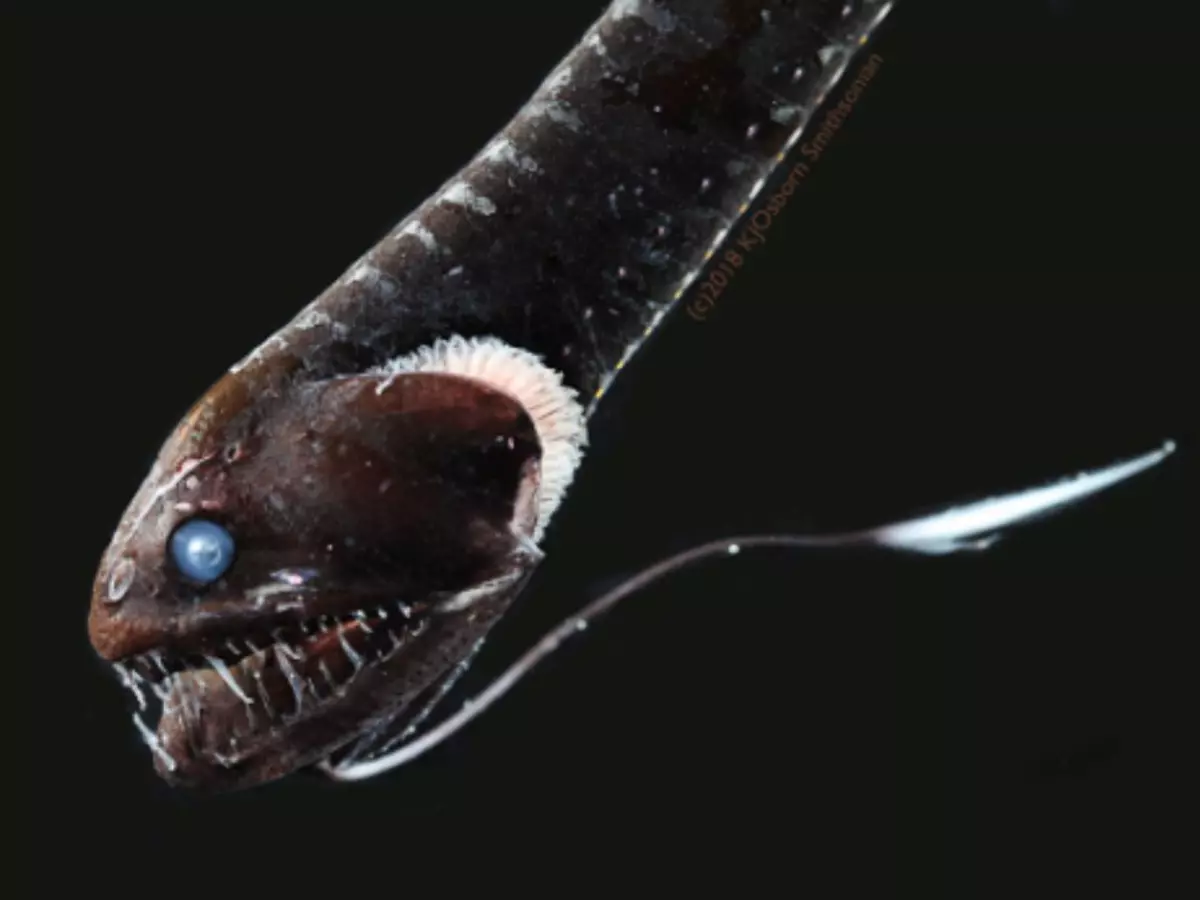Scientists Have Uncovered Secrets About The Almost Invisible Ultra-Black Fish In The Depths Of The Ocean
Scientists who have been studying ultra-black fish have uncovered the secret behind their extreme colour. They studied 16 species that fit the ultra-black category.

Being ultra-black in deep oceans provides a great camouflage to creatures in a fish-eat-fish world. Scientists who have been studying some of these exotic creatures have uncovered the secret behind their extreme colour.
These fish - like the fangtooth, the Pacific blackdragon, the anglerfish and the black swallower - have modified the shape, size and packing of the pigment in their skin to the point that it reflects less than 0.5% of light that hits it, Reuters reported researchers as saying.
Scientists studied 16 species that fit the ultra-black category.
 Karen Osborn/Smithsonian
Karen Osborn/Smithsonian
¡°In the deep, open ocean, there is nowhere to hide and a lot of hungry predators. An animal¡¯s only option is to blend in with the background,¡± Reuters quoted zoologist Karen Osborn of the Smithsonian Institution¡¯s National Museum of Natural History in Washington, a co-author of the research published in the journal Current Biology as saying.
Not a lot of sunlight penetrates more than 650 feet (200 meters) below the ocean¡¯s surface. Some of these ultra-black fish reside 5,000 metres deep.
Also Read: Even Before Its Discovery, Sea Creature Had Plastic In Its Gut, So It Has Been Named After It
 Karen Osborn/Smithsonian
Karen Osborn/Smithsonian
At depths like that, bioluminescence - light emission by living organisms - is the only source of light. Some of the ultra-black fish have bioluminescent lures on their bodies to coax prey close enough to be eaten, the report mentions.
The skin these fish have is among the blackest material known, absorbing light so efficiently that even in bright light they appear to be silhouettes.
Also Read: World's Largest Cave Fish Discovered In Meghalaya, It's 1.5 ft In Length & Has No Eyes
 Karen Osborn/Smithsonian
Karen Osborn/Smithsonian
The abundant melanin pigment in their skin is distributed in an unusual fashion. ¡®By packaging perfectly sized and shaped melanosomes - pigment-filled structures within the skin cells - into tightly packed and continuous layers at the skin¡¯s surface, the fish ensure that essentially all light reaching them will hit this layer and never escape¡¯, the report explains.
¡°This mechanism of making thin and flexible ultra-black material, could be used to create ultra-black materials for high-tech optics or for camouflage material for night ops,¡± Osborn said.
What do you think of these fish's ability to adapt?
Also Read: This Fisherman's Collection Of Rare Sea Creatures Has To Be Seen!